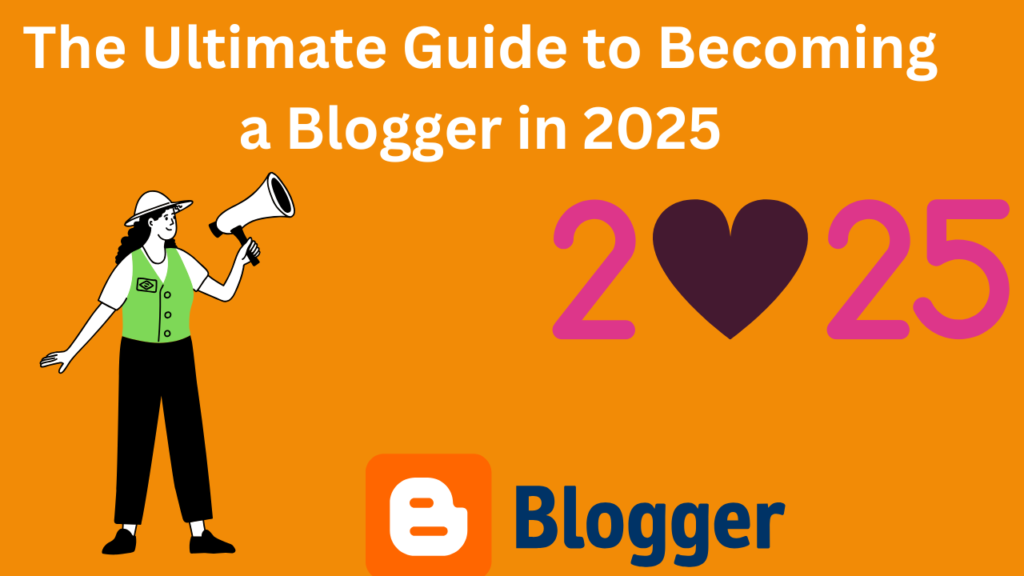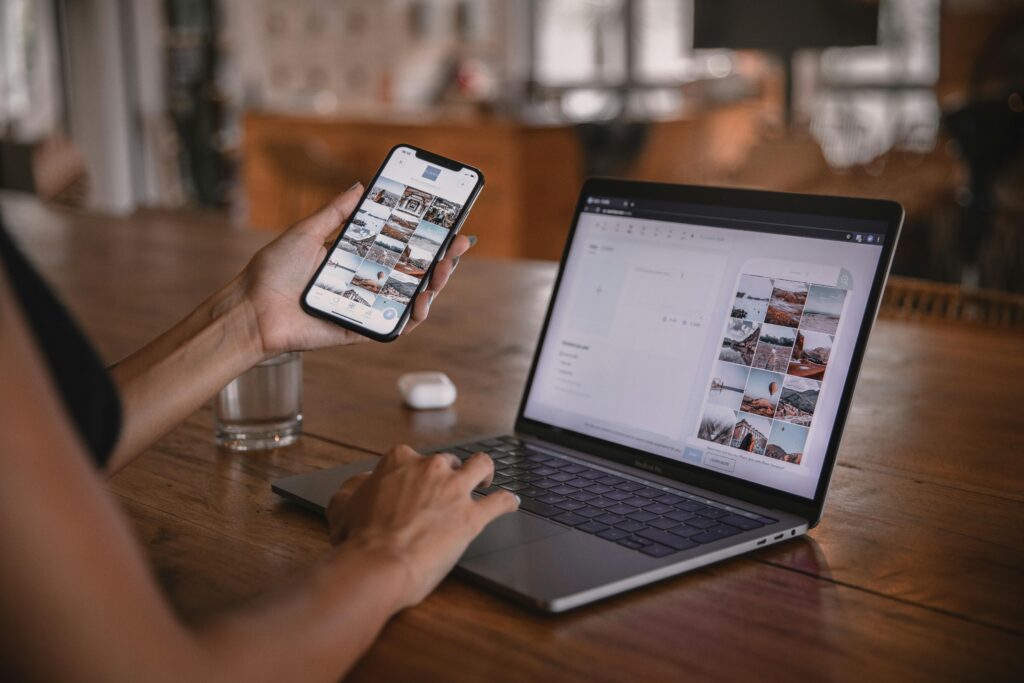The Ultimate Guide to Becoming a Blogger in 2025: Unlock Your Creative Potential!

Introduction
In the digital age, where content creation has become a cornerstone of personal expression and online marketing, blogging platforms such as Blogger play a pivotal role. Blogger, Google’s free blogging platform, has been a popular choice for individuals and businesses alike due to its simplicity, accessibility, and robust features. Whether you’re a writer seeking an outlet for creativity, an entrepreneur looking to build a brand, or someone wanting to share your expertise, Blogger provides an excellent starting point.
This article delves into the Blogger concept, its whole meaning, and the various ways you can use this platform effectively. With clearly defined outlines and explanations, this guide will equip you with everything you need to know to make the most of Blogger.
SEO Title: Your Complete Guide to Building a Successful Blogger Website
Meta Description: Learn how to become a successful blogger in 2025 with effective strategies and tips. Transform your passion into a thriving online presence.
URL Structure: www.yourwebsite.com/create-successful-blogger-website
What is a blogger?
Blogger is a free, user-friendly blogging platform owned by Google launched in 1999 by Pyra Labs acquired by Google in 2003. Blogger allows users to create and manage blogs without needing advanced technical skills. It offers essential blogging tools, including customizable templates, easy content management, and integration with other Google services like Google Analytics and AdSense.
The main appeal of Blogger lies in its simplicity and accessibility. Unlike many other blogging platforms, it does not require users to purchase hosting or a domain name. Instead, blogs are hosted on Google’s servers and can be accessed via a subdomain (e.g., yourblogname.blogspot.com) or a custom domain.
10 Useful Outlines for Understanding and Using Blogger Effectively
To fully understand and utilize Blogger, we’ll break the platform into 10 key areas:
- Understanding the Basics of Blogging
- Creating a Blogger Account
- Selecting a Blog Niche
- Customizing Your Blog’s Design
- Writing and Publishing Blog Posts
- Enhancing Your Blog for SEO
- Monetizing Your Blog
- Engaging with Your Audience
- Tracking Blog Performances

1. Understanding Blogging Basics
Before diving into Blogger, it’s essential to understand the basics of blogging. A blog is an online platform where individuals or organizations share content, typically in the form of articles or posts. Blogs can serve various purposes, such as:
- Sharing personal stories or experiences
- Educating or informing readers about a specific topic
- Promoting a business or product
- Building an online community
Blogger simplifies the process by providing the tools necessary to create and maintain a blog, even if you have no prior experience with web development or design.
2. Creating a Blogger Account
To get started with Blogger, you’ll need a Google account. Once you’re signed in to your Google account:
- Visit www.blogger.com.
- Click on “Create a Blog.”
- Choose a name for your blog and a domain address (e.g., yourblogname.blogspot.com).
- Select a template for your blog’s design, which you can customize later.
Blogger’s setup process is straightforward, making it an excellent platform for beginners.
3. Choosing a Blog Niche
A niche refers to the specific topic or area your blog will focus on. Selecting a niche is critical because it defines your target audience and helps you stand out in the crowded blogging space. Popular niches include:
- Technology
- Travel
- Food and recipes
- Fitness Health and Fitness
- Finance Personal Finance
- Lifestyle
When choosing a niche, consider your passions, expertise, and the market demand. A well-defined niche ensures that your content resonates with your audience and establishes you as an authority in the field. When selecting a niche, consider your passions, expertise, and market demand. A clearly defined niche ensures that your content resonates with your audience and establishes you as an authority in your field.
4. Customizing Your Blog Design
Blogger offers a variety of templates that you can customize to match your blog’s theme and branding. To customize your blog:
- Go to the “Theme” section in your Blogger dashboard.
- Select a template that suits your style.
- Use the “Customize” option to modify elements like colors, fonts, and layout.
For those with coding skills, Blogger allows you to edit the HTML and CSS of your blog. Customizing your design not only improves the visual appeal but also enhances user experience.
5. Writing and Publishing Blog Posts
The heart of any blog is its content. Blogger provides a simple editor for creating and publishing blog posts. Here’s how to write and publish a post:
- Go to the “Posts” section and click “New Post.”
- Write your content using the built-in editor, which supports text formatting, images, videos, and links.
- Use the “Labels” feature to categorize your post.
- Preview your post to check for errors.
- Click “Publish” to make your post live.
Consistency is key in blogging. Regularly publishing high-quality content keeps your audience engaged and helps your blog grow.
6. Optimizing Your Blog for SEO
SEO (Search Engine Optimization) is vital for increasing your blog’s visibility on search engines like Google. Here are some SEO tips for Blogger:
- Use keywords: Incorporate relevant keywords naturally in your posts, titles, and meta descriptions.
- Optimize images: Use descriptive file names and alt text for images.
- Use custom URLs: Edit your post’s permalink to include keywords.
- Enable HTTPS: Ensure your blog is secure by enabling HTTPS in the settings.
Blogger also integrates with Google Search Console, allowing you to monitor your blog’s performance in search results.

7. Monetizing Your Blog
Blogger makes it easy to monetize your blog through various methods:
- Google AdSense: Blogger integrates seamlessly with AdSense, allowing you to display ads on your blog and earn revenue.
- Affiliate marketing: Promote products or services and earn a commission for every sale made through your referral link.
- Sponsored posts: Collaborate with brands to write posts promoting their products.
- Selling products: Use your blog to sell digital or physical products.
To monetize effectively, focus on building a loyal audience and creating quality content.
8. Engaging with Your Audience
Engagement is crucial for building a loyal readership. Here’s how you can interact with your audience on Blogger:
- Enable comments: Allow readers to leave comments on your posts and respond to them promptly.
- Share on social media: Promote your blog posts on platforms like Facebook, Instagram, and Twitter.
- Use email newsletters: Collect email addresses and send updates about new posts or exclusive content.
- Create interactive content: Include polls, quizzes, or questions in your posts to encourage participation.
Engaging with your audience fosters a sense of community and keeps them returning for more.
9. Tracking Blog Performance
Blogger integrates with Google Analytics, a powerful tool for tracking your blog’s performance. Analytics provides insights into:
- Traffic sources (e.g., search engines, social media, direct visits)
- Audience demographics (age, location, interests)
- Popular posts
- Bounce rate and average session duration
By analyzing this data, you can identify what’s working and make informed decisions to improve your blog.
10. Advantages and Limitations of Blogger
Advantages:
- Free to use: No need to pay for hosting or a domain (unless you want a custom domain).
- User-friendly: Intuitive interface suitable for beginners.
- Reliable hosting: Blogs are hosted on Google’s servers, ensuring reliability and fast loading times.
- Integration with Google services: Seamless connection with tools like AdSense, Analytics, and Search Console.
Limitations:
- Limited customization: While Blogger offers basic customization, it lacks the flexibility of platforms like WordPress.
- Less control over your blog: Since Blogger is owned by Google, you don’t have full ownership of your blog.
- Basic functionality: Advanced bloggers may find the platform’s features limiting.
Despite its limitations, Blogger remains an excellent choice for those starting their blogging journey.
Conclusion
Blogger is a versatile and beginner-friendly platform that has stood the test of time. Whether you’re starting a personal blog or exploring blogging as a career option, its simplicity and integration with Google services make it an attractive choice. By understanding the basics, choosing the right niche, and implementing strategies to optimize and monetize your blog, you can turn Blogger into a powerful tool for sharing your voice with the world.
With the knowledge provided in this guide, you’re now equipped to create, manage, and grow a successful blog on Blogger. So, why wait? Start your blogging journey today!
Welcome this is my pagehttps://www.xafsashariif.com
Here are some helpful articles https://www.xafsashariif.com/how-to-become-a-web-developer/







